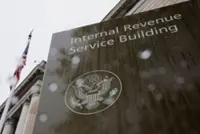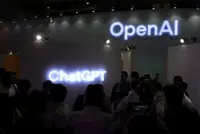KUALA LUMPUR: Convenience store chain operator 7-Eleven Malaysia Holdings Bhd is looking at a two-fold benefit from the installation of its own cash recycling machines (CRMs) at its 2,600-wide outlets in Malaysia.
is looking at a two-fold benefit from the installation of its own cash recycling machines (CRMs) at its 2,600-wide outlets in Malaysia.
This will be made possible via a collaboration with Japan-based Seven Bank Ltd, which is a leader in operating ATM business, as it seeks to deploy 100 CRMs at selected 7-Eleven stores in Kuala Lumpur, Selangor, Johor and Penang this year. Seven Bank installed its original CRM in Rawang early this month.
7-Eleven Malaysia Holdings Bhd co-chief executive officer Wong Wai Keong told StarBiz that some of its stores already have ATMs provided by the banks but they have stopped deploying ATMs in the last couple of years.
“From our own data, footfall to our stores with ATMs is higher than the other stores (without ATMs).
“This presents an opportunity for us to put our machines, which would allow us to attract more footfall or traffic.
“And when customers come in for such service, they will also buy something else. Our basket size will increase as well.
“So, there are two folds here in terms of the benefits to us,” he said.
The CRM, which would be known under the brand name, Reachful, includes services such as automated teller machines (ATMs) and cash deposit machines (CDM), with more other services to be introduced at a later date.
Reachful Malaysia Sdn Bhd, formerly known as Abadi Tambah Mulia Internasional Malaysia Sdn Bhd (ATMIM), is held by Seven Bank (50.1%), 7-Eleven Services Sdn Bhd (24.9%), HQZ Credit Sdn Bhd (20%) and SMRT Holdings Bhd (5%).
(5%).
Reachful Malaysia is responsible for the operations and deployment of the CRMs here.
7-Eleven Services Sdn Bhd is a wholly owned subsidiary of 7-Eleven Malaysia, which is held by Berjaya Group founder Tan Sri Vincent Tan with a 28.07% stake.
“Malaysia shows a significant growth in population and gross domestic product. In the cashless society, currency in circulation is at a high level too.
“We found the market very promising to expand our business,” ATMIM CEO Jin Sudo said at the launch event here.
Meanwhile, Seven Bank’s president and representative director Masaaki Matsuhashi said the company also plans to expand to more areas in Sabah, Sarawak and selected suburban areas next year.
Since its first overseas ATM deployment in the United States in 2017, Seven Bank expanded its business in the United States, Indonesia and the Philippines with more than 21,000 ATM installations by 2024.
He said Malaysia will be the fourth market outside of its home country.
The company aims to provide uniquely added value by combining retail and financial services in the future.
“By collaborating with our partner companies to deploy ATM services in 7-Eleven stores in Malaysia, we hope to enrich the lives of the Malaysian people and contribute to further social development and economic growth,” he said.
Matsuhashi added the company would also consider expanding the CRM outside of 7-Eleven stores such as malls and petrol stations, depending on the demand and needs.
Even as Malaysia moves towards a cashless society, there is still a huge proportion of the population that transact in cash.
This served as a huge opportunity for Seven Bank to expand its ATM business here.
“While Malaysia is progressively embracing digital payment methods, the need for physical cash is still evident and remains a significant part of the payment landscape, especially in non-urban areas and among certain demographics,” said Seven Bank managing executive officer and head of overseas business, Tsuneo Nagashima.
According to a 2022 study by Paynet, some 78% of Malaysians still preferred cash payments, while 48% of the population still used cash daily, with usage reaching two thirds in non-urban areas.
A recent 2024 Ipsos study indicated that 45% of Malaysians relied solely on cash for payments.
7-Eleven Malaysia executive director cum co-chief executive officer Tan U-Ming said, “So, while Malaysia is progressively embracing digital payment methods, the need for physical cash is still evident and remains a significant part of the payment landscape, especially in non-urban areas and among certain demographics.
“Whether it’s financial inclusion, reliability, accessibility or support for the informal sector, physical cash currently remains a critical component of Malaysia’s economy and societal structure, serving as a universal and reliable payment method. “With our partners Seven Bank, SMRT and HQZ, we are pleased and confident of our joint venture, Reachful Malaysia, in addressing these requests for increased convenience, greater access to financial services for our 7-Eleven customers,” he said.
Tan added that Reachful will be charging RM1 fee for each interbank cash withdrawal for its CRM services.
This is similar to the fee imposed on customers who use Malaysian Electronic Payment System ATMs, which are operated by Nasdaq-listed Euronet Worldwide Inc after it acquired 800 MEPS ATMs from PayNet in May last year.





